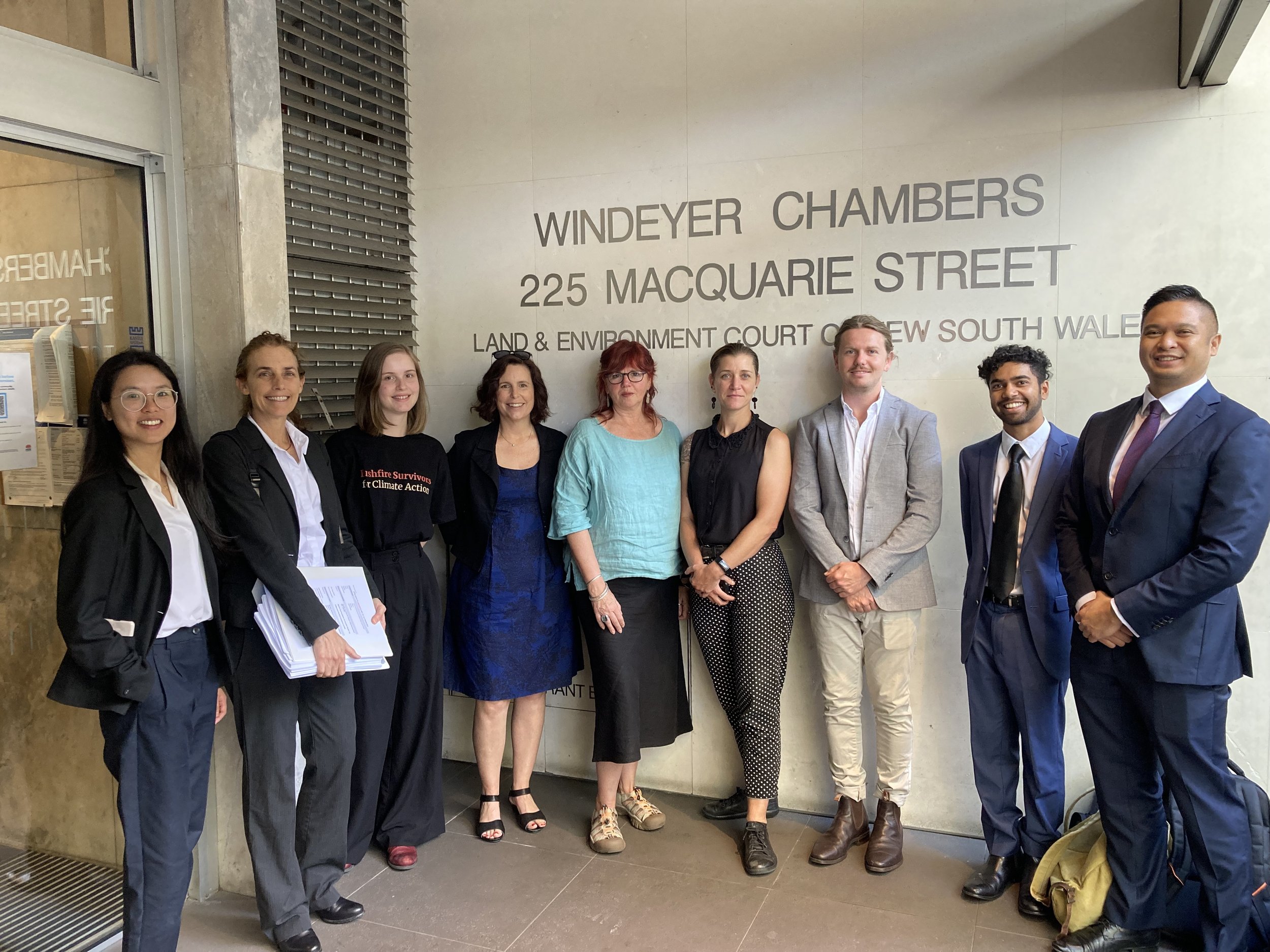
Narrabri Court Case
Our legal challenge to the massive Narrabri Coal mine extension
Our argument: Approving new fossil fuel projects, like the Narrabri Coal Mine expansion, is unreasonable in light of the climate crisis and its impacts. The Independent Planning Commission (IPC) had approved Whitehaven's application to extend the mine, pushing its life from 2031 to 2044. This extension also allows for Australia's longest (10km) and widest (400m) underground longwalls.
Legal Representation: Environmental Defenders Office (EDO)
BSCA was represented by the Environmental Defenders Office (EDO) in this case. EDO Special Counsel Matt Floro asserted that the IPC's approval of a major new source of climate pollution is legally unreasonable and irrational.
A briefing on the case is available from the EDO here.
Narrabri
The expansion of the Narrabri coal mine is projected to produce 480Mt CO2-e in emissions, roughly equivalent to Australia's total greenhouse gas emissions in 2022 (487Mt CO2-e). This expansion includes some of the longest (10km) and widest (400m) underground longwalls in Australia. Notably, the mine is also highly methane-polluting, releasing 32Mt CO2-e in Scope 1 emissions, although the IPC approved this with a reliance on future, uncertain technology to reduce
A Call for Transition
BSCA argued that approving such a highly polluting mine is legally unreasonable and not in the public interest. They questioned whether the continuation of jobs in a declining industry and private profits justify the costs of climate change. Bushfire survivors, like Ms. Lee, called on the court to recognise that expanding mining operations in Australia is inconsistent with the law and public interest
Jo Dodds, BSCA President and Fiona Lee, Bushfire Survivor on Gomeroi Country at the Narrabri Coal Mine in January 2023
The IPC’s Decision
The IPC categorized this project as a "gassy mine" but relied on uncertain future technology to reduce methane levels. We questioned the reasonableness of extending a coal mine's life until 2044, considering the current climate reality.
The Land and Environment Court ruled that the IPC's approval of the Narrabri Coal Mine expansion, which is set to emit the equivalent of Australia's total annual CO2 emissions, was legally reasonable. Represented by the EDO, BSCA had sought a judicial review of the IPC's April 2022 approval of the Whitehaven Coal project.
Despite the disappointment in the outcome, this decision underscores a widening gap between planning decisions and community expectations, as high-emission projects continue to expose communities to the severe impacts of climate change. BSCA spokesperson Fiona Lee emphasised the moral obligation of climate survivors to challenge such planning decisions that are not in the public interest, highlighting the urgency of rapidly reducingdirty fossil fuel pollution to mitigate the devastating effects it has on our climate.
Watch our short highlight reel from the press conference:
Is it reasonable to approval a coal mine extension until 2044?
BSCA spokesperson Fiona Lee, who lost her home to a bushfire in 2019, said the IPC’s approval of the coal mine showed that planning decisions had not kept up with community expectations, and the need to take immediate action to reduce dirty fossil fuel pollution.
“Continuing to allow coal mines to expand – especially highly polluting ones – has a direct impact on Australians’ safety and security, the burning of coal, gas and oil worsens the impacts of climate change, and we are already seeing bushfires and other extreme weather increase in frequency and intensity because of climate change.”
Fiona Lee,
Bushfire Survivor Member
Make a donation.
As bushfire-impacted people, we use our lived experience to highlight the links between climate change and increasingly dangerous bushfires.
When you partner with us through donating, you are contributing to this important work.



